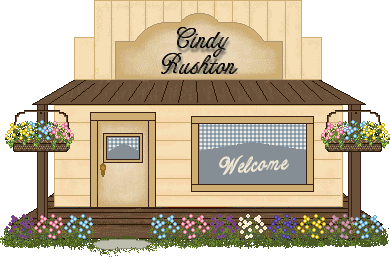 In 5 years we paid off $20,000 of debt and medical bills on an average income of $22,000 per year.
In 5 years we paid off $20,000 of debt and medical bills on an average income of $22,000 per year.
We didn’t have $20,000 debt when we were married. My husband had $3,000 in credit card debts at the time. Over the 5 years we made 2 major moves, killed 3 cars, and our daughter was born and placed in Neonatal Intensive Care (the insurance paid all but $7,000 of her bills) Click here to see the list of debts and payments
During the 5 years we have been married, our income averaged $22,000 a year. The first year we earned $13,000 and steadily went up to $28,000 in 1999. We paid off $10,000 in debt and medical bills in 1999, so half of the debt was paid off when we were earning the most money. You may wish to see our budget from 1999 (before my husband was laid off). Our basic living expenses were $18,000 in 1999 and we put the rest on debt. We also used any extra money we received like income tax returns (usually a few hundred dollars) gifts of money, etcetera to pay off debt rather than splurging on things we wanted.
What it boils down to is we nickel and dimed our way out of debt. First we made up our minds that it had to be done. There never has been another option for us — we HAD to figure out a way to do it. (I am disabled with Chronic Fatigue Syndrome so I can’t work a regular job even if I wanted to.)
One of the ways that helped us the most to pay off the cards was to transfer to other credit cards with a low interest rate. I transferred every six months (or whenever the good rate expired.) I only paid 9.9% for 3 months once in 5 years. Otherwise I have never paid more than 6.9% and the last 2 years (1998-99) were 2.9% and 3.9%. We went from paying $100 a month in interest to $15 a month in interest. Then we paid the other $85 that we saved each month to pay down the principle. We kept paying the same payment, which was then more than the minimum but we had a lot more money going to principle.
We don’t eat out a lot. I spend $250 a month on groceries and I don’t buy my kids a treat every time I go to the store. We don’t go to a lot of movies and we don’t buy a lot of things. We drive 10-12 year old cars. All the kids clothes and toys are from garage sales (and we still get many Baby Gap and Baby Osh Kosh). Many garage sale kids’ clothes have only been worn once or twice. It is a lot of work finding the best ones, but worth it for the savings. We also purchase most of the kids’ Christmas and birthday presents at garage sales. Right now they don’t care, but when they are older we plan to get them one new present and then fill in with garage sale finds.
Paying off debt or saving money is all a matter of priorities. You decide what is more important to you. Some people use disposable diapers. I use cloth. It is more important to me to pay off my debts and house than to have the convenience of disposable diapers. (Personally, we don’t mind using cloth. In fact we like them.)
We all choose how to spend our money. We choose to go out to eat, we choose to have cable, we choose how many and what kind of gifts to buy our kids, we choose how we buy groceries and we choose if both spouses will work (and the added expense that goes along with both working.) It’s not the big things so much as all the little things that add up. See how it adds up: CLICK HERE. If we want to go to a movie we do occasionally and we do go out to eat for birthdays but these are TREATS, not the norm.
I almost always figure how many hours my husband will have to work in order to pay for something. I would rather save money and have him home then to have him gone to pay for things we don’t need. An example would be if it costs $100 for an item, is it worth him working 12 hours to pay for that item? If the answer is yes, then great but if it’s no then we don’t purchase it.
The trick is you have to figure out how to live on less than you earn. There is no magic bullet that will make your debt go away overnight or your savings rise like a wild day on the stock market. It is a long process of nickel and diming your way to savings. How quickly you get out of debt depends on how many extras you are willing to give up. The thing is that some people don’t want to give up those things. When the stress of having debt or no savings is more than the stress of giving up the things that you want then it will motivate you to pay off debt or save money in these ways. If it is more important for you to save money than to spend it you will find a way.
Amazingly enough, when you really get into it, you find that many of the things you “needed” yesterday aren’t quite as important today. Even my self proclaimed “formerly spendthrift” husband says I have ruined him because now he can’t bring himself to spend his Christmas money from the family on this or that because he might find something else of greater value to him later.
-Tawra
Dig Out of Debt: Over 1000 of the Best Ideas From LivingOnADime.com (5 ebook series–click here!)
Ready to get out of debt for good? It is easier than you think! Dig Out Of Debt: 1,000 of the Best Ideas from LivingOnADime.com is a series of 5 e-books containing a total of 229 pages of the most popular information from the LivingOnADime.com web site. This e-book series includes the same information as the printed Dig Out of Debt book. The Dig Out of Debt Series is included in the Living On A Dime Extravaganza.
- Save over $10,000 a year on groceries!
- Stop throwing your money away in the chaos and clutter!
- Get out of debt even when you have kids.
- Learn inexpensive but creative ways to make your holidays memorable!
- Read how Michael and Tawra paid off $20,000 debt on $22,000 per year income
Grab Your Copy Here: Living-on-a-Dime.com







